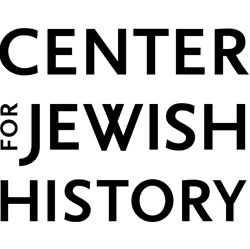A Celebration of Genealogy, Heritage, & Immigration
Sunday, May 21, 2023. 10:00 AM – 5:00 PM ET.
The Hebrew word Mishpachah means family – we invite you to join ours. The day-long Mishpachah Festival focused on Ashkenazi heritage will celebrate and explore Jewish genealogy, heritage, and immigration with JewishGen, the Museum’s Jewish Genealogical Research Division and other partners. Overlooking the Statue of Liberty and Ellis Island, the stories of Jewish families and experiences around the world through time will converge in New York City at the Museum of Jewish Heritage. The festival will feature music, activities for kids and families, Jewish genealogy lectures, cooking demonstrations, Jewish heritage panels, and more.
Co-hosted by

A Bissel for the Mishpachah – Entry for Prizes
When you register for and attend the Mishpachah Festival, you will be automatically entered into a drawing for one of the following prizes. Winners will be informed of their selection via email. Mazal tov – good luck!
- Museum of Jewish Heritage Friends and Family Memberships
- JewishGen Value Added Services
- Fold3 complimentary annual premium subscriptions
- Ancestry DNA kits
- Gesher Galicia one year membership
- JGSNY one-year memberships
- One year membership to Jewish Genealogical Society of Long Island
- One year MyHeritage Complete accounts
- MyHeritage DNA Kits
Full Event Calendar
- Family Tree – Joanie Leeds in Concert for the Whole Family at 11:00 AM
- JewishGen and the Peter and Mary Kalikow Jewish Genealogy Center at MJH at 1:00 PM
- Researching Our Families: Three Case Studies at 2:00 PM
- The Bintel Brief — Yesterday, Today, and Tomorrow at 3:30 PM
Color key:


HIAS Records at the YIVO Institute for Jewish Research
In an overview of its Hebrew Immigrant Aid Society (HIAS) records, Hallel Yadin, archivist and special projects manager at YIVO, will share the history of HIAS, the world’s oldest refugee agency. Learn about the history of the HIAS collection held at YIVO along with the world’s largest archive and library on Eastern European Jewish history and culture.

Family Tree – Joanie Leeds in Concert for the Whole Family
Edmond J. Safra Hall
Grammy-winning NYC-based singer-songwriter Joanie Leeds and her band perform a rocking family concert for families and children of all ages. With Andi Rae Healy on ukulele and percussion and Jeff Litman on guitar, the band will play songs from Leeds 11 albums of original music including Jewish songs for kids and kids at heart. Celebrate songs of togetherness and family, and learn Yiddish words like Shayne Punim and Meshugana!
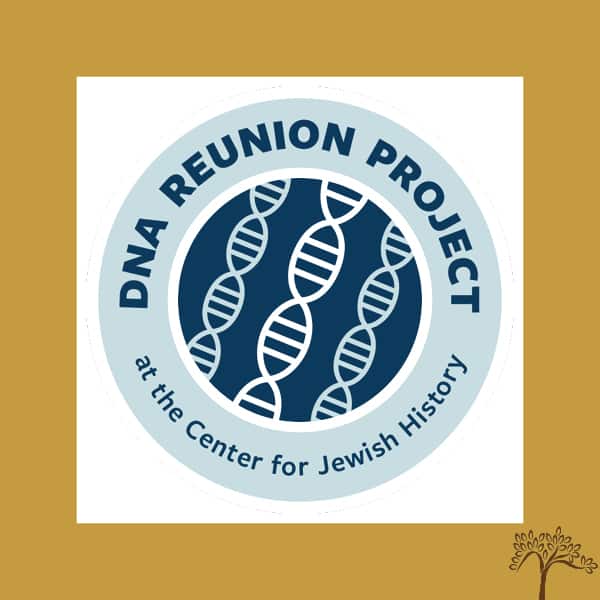
Center for Jewish History DNA Reunion Project
The Center for Jewish History recently launched its DNA Reunion Project, a singular effort by the Ackman & Ziff Family Genealogy Institute. The program provides free DNA kits to Holocaust survivors and their children to help fill in gaps on their family tree or even connect them with lost or unknown survivors or descendants. Project co-founder Dr. Adina Newman, specialist in Ashkenazi Jewish genetic genealogy, offers expert consultations to solve complex cases, and provides educational opportunities on how DNA testing can help reclaim Jewish family stories. Dr. Newman will discuss the DNA Reunion Project, explain the benefits of DNA testing for this population, and share some cases she has solved through DNA technology.
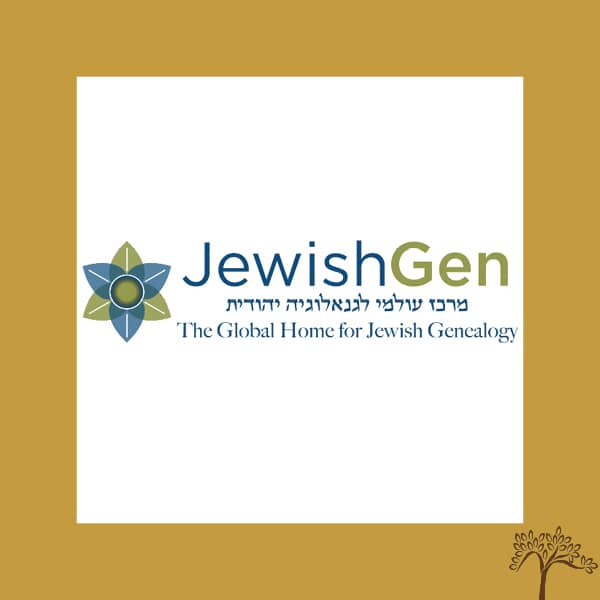
JewishGen and the Peter and Mary Kalikow Jewish Genealogy Center at MJH
Edmond J. Safra Hall
Learn about JewishGen and its work from Avraham Groll, JewishGen Executive Director, and Karen Franklin, Consulting Director of the Jewish Genealogy Center and Director of Family Research at the Leo Baeck Institute. With new resources, new projects ahead, exciting details about the opening of the JLTV generations program, and the JewishGen and Peter and Mary Kalikow Jewish Genealogy Center at the Museum of Jewish Heritage, visitors to the Museum and our website will gain unprecedented access to research their genealogy.
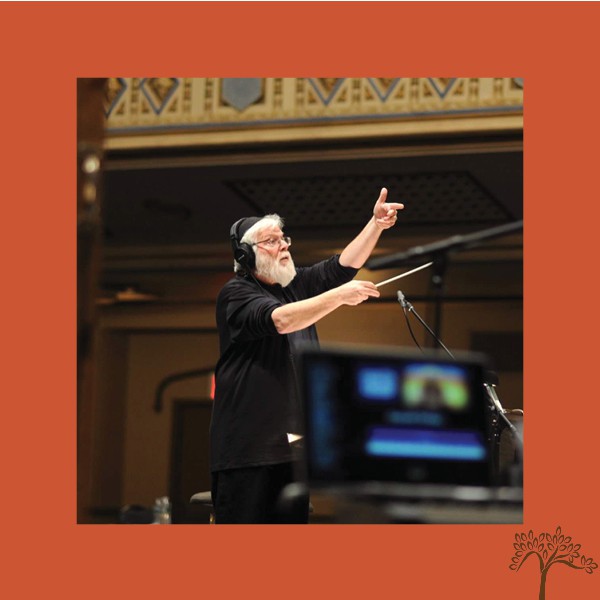
Yiddish Mishpokhe Songs
Join Zalmen Mlotek at the piano for an intimate singalong workshop with some of the most beloved Yiddish songs. Folk songs, theater songs, and songs selected from the new website yiddishsongs.org will touch on themes of family. All songs will include English translations.
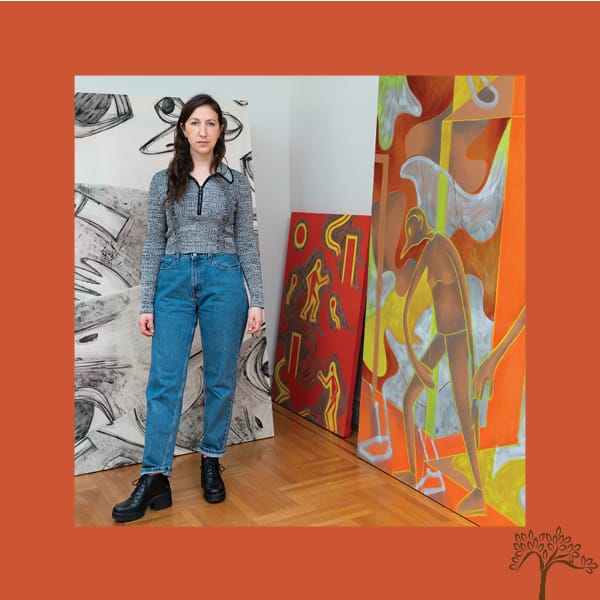
Artmaking for Families: Shapes and Colors that Tell Your Family’s Story
For kids 6 and up; younger participants with their caregivers also welcome!
Join visual artist Jaqueline Cedar to experiment with shapes and colors that describe an important event, place, or feeling that you’ve experienced with your family. First, we’ll use paint sticks to fill our pages with a variety of colors, lines, and shapes. Then, we’ll cut out these drawing experiments to create a collage that tells a story about you and your family.

Researching Our Families: Three Case Studies
Edmond J. Safra Hall
Three longtime members of the Jewish Genealogical Society, Inc. (JGSNY), Steve Stein, Karen Franklin, and Hadassah Lipsius, will each present a case study that demonstrates how they resolved a genealogical question in their family research.
Steve Stein will show how he discovered and then resolved a discrepancy regarding the identity of his wife’s Lithuanian great-great-grandmother, Hinda Lubinsky, using a variety of sources, and ultimately applying the Genealogical Proof Standard. Breaking through this “brick wall” enabled the discovery of earlier ancestors as well as a host of contemporary relatives.
Karen Franklin found that her great-great-great uncle Jacob Kohlberg ventured to Memphis, Tennessee, during the Yellow Fever epidemic in 1878 to volunteer his services to bury the dead. Not surprisingly, he contracted the fever and lost his hearing, but survived. Franklin will describe how she solved the mystery not only of why Kohlberg risked his life and what happened to him, but also the story of Jacob’s father Leopold who died of “the fever” in Philadelphia that same year.
Hadassah Lipsius traveled to Philadelphia with her father and young nephew to visit the grave of her great-grandmother, Sheina Tauba, nearly 30 years ago. They were shocked to find that her father’s name was missing from the Matzeva (gravestone). The search for Sheina Tauba father’s name took Hadassah through family correspondence, bad assumptions, U.S. Death records, St. Petersburg, Russia Chorale Synagogue records, St. Petersburg Archive, LitvakSIG, and the Vilnius Archives.
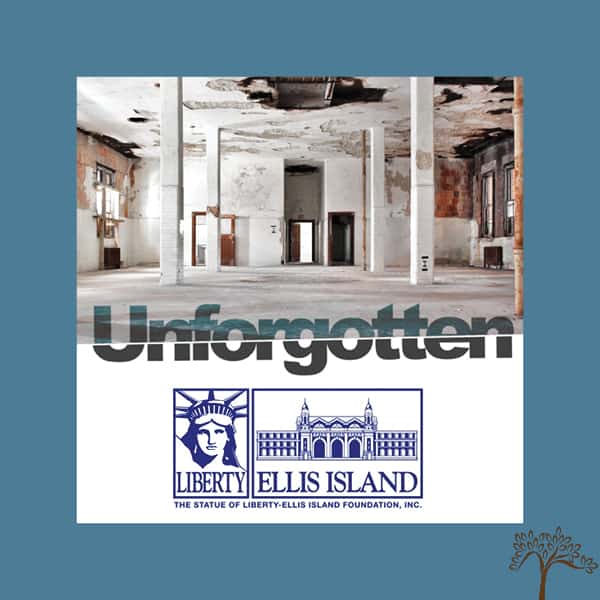
Ellis Island: Immigration’s Unforgotten Stories
Ellis Island is synonymous with U.S. immigration. In 2001, The Statue of Liberty-Ellis Island Foundation unveiled the Ellis Island Passenger Database. Millions rely on this resource of 65 million arrival records for help along their genealogical journey. Stephen Lean, Director of the Family History Center at Ellis Island, will offer tips for using the database along with notable stories about the Ellis Island Immigrant Experience.
The presentation will include a screening of UNFORGOTTEN: Ellis Island, a short film about the decades when Ellis Island was abandoned. Lean will be joined by the film’s creator, Aaron Asis.

The Bintel Brief — Yesterday, Today, and Tomorrow
How one advice column changed (and is still changing) Jewish life in America
Edmond J. Safra Hall
When the Forward’s Bintel Brief advice column was first published in Yiddish in the early 20th century, it provided vital information for new Jewish immigrants trying to navigate life in the U.S. There were letters from families living in dire poverty, workers being exploited by their bosses, and immigrants detained at Ellis Island.
The Forward not only offered advice on personal problems, but it also taught these new Americans about their legal rights. The Bintel Brief column is alive and well today, as one of the Forward’s best-read features, igniting conversations among readers and on social media. Recent columns guided a mother whose adult sons owe her money, reassured a convert who divorced her Jewish husband that she is still Jewish, and advised a reader whose friend asked for help disposing of Nazi memorabilia.
Join Forward archivist Chana Pollack and current Bintel Brief editor Beth Harpaz for a conversation about the history of Bintel and what it says about the changing world of Jews in America over the decades. And come with your quandaries — maybe we’ll answer your questions at the event!

The Tale of Yiddish Yerushe (Inheritance)
Matthew “Motl” Didner will present an illustrated journey through the development of Yiddish from the ancient Kingdom of Israel through the Babylonian exile, occupation by ancient superpowers, diaspora in Europe, migration around the world, and Yiddish culture in the 21st Century. Participants will also have an opportunity to discuss the origins of Ashkenazi family names.
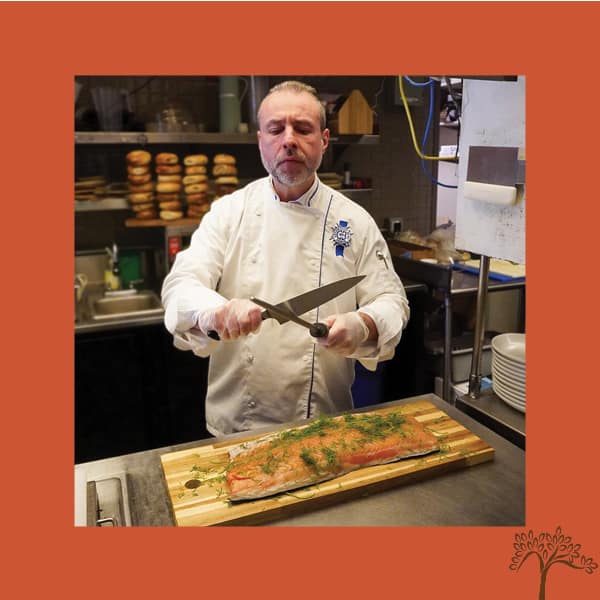
Cooking Demonstration: Lox with David Teyf
David Teyf, owner and Chef of the Museum’s acclaimed Lox Café, will lead live demonstrations of his unique process for developing New York’s finest lox. Join Teyf behind the scenes in the Museum’s catering kitchen, where he will dive into the history of lox making. Learn how, and then taste some of Teyf’s most delicious varieties of lox.
Meet on the second-floor lobby, and a staff member will direct you to the catering kitchen.

JewishGen Expert Talks
Join JewishGen experts for an overview of the geographical/topical areas they manage, and how family historians can most effectively conduct and learn about their family history and heritage. JewishGen’s resources are offered as a free public service to the community.
Talks will last 25-minutes with questions. Before or after their presentations, the scholars will be available to connect and answer questions in the Resource Area, which will be open from 11:00 am – 4:00 pm.
- Belarus Research Division presented by Paul Zoglin at 10:00 a.m.
- German Research Division presented by Alex Calzareth at 10:30 a.m.
- Holocaust Collection & JOWBR (Burial Registry) presented by Nolan Altman at 11:00 a.m.
- Gesher Galicia & JRI Poland presented by Steve Turner and Hadassah Lipsius at 11:30 a.m.
- Hungary Research Division presented by Vivian Kahn at 12:00 p.m.
- Ukraine Research Division presented by Phyllis Berenson at 12:30 p.m.
- Romania Research Division presented by Michael Moritz at 3:30 p.m.
- United States Research Division presented by Ellen Kowitt at 4:00 p.m.
- Yizkor Books/JewishGen Press presented by Avraham Groll at 4:30 p.m.

Special Curator Tours of Poland, New York, and Ukraine and Lithuania
Join Museum of Jewish Heritage Curatorial Research Assistant Rebecca Frank, one of the curators of our exhibition The Holocaust: What Hate Can Do, for an exclusive tour at the Mishpachah Festival focused on distinct locations of interest as they are represented in the exhibition. Tours are capped at 30 people.
Poland – 10:30 – 11:30 am
Explore stories and see objects from Poland, ranging from a matzah cover made before the war in Kielce to a textbook from the Warsaw ghetto underground medical school.
New York – 1:00 – 2:00 pm
New York stories in the exhibition include objects from New York’s Jewish community before World War II and objects related to rescue efforts and lobbying in New York during the Holocaust.
Ukraine and Lithuania – 2:30 – 3:30 pm
Explore stories and see objects from Ukraine and Lithuania, from a notebook used at the Vilna Jewish School for Girls to the announcement of the formation of the Odessa ghetto.
Mishpachah Festival FAQ
When is the Mishpachah Festival?
The festival is on Sunday, May 21, 2023, at the Museum of Jewish Heritage – A Living Memorial to the Holocaust (36 Battery Place, New York, NY 10280).
Programs will run from 10:00 AM – 5:00 PM The resource area with invited partners and author signings is open from 11:00 AM – 4:00 PM
Is the festival free?
Yes, the festival is free of charge for all! We hope that you will consider making a donation to the Museum, and perusing our Pickman Museum Shop and book table in the lobby during the festival.
Are tickets required to attend the festival?
General registration is free to all and required. Registration will be available at the door for those who haven't registered. Programs admission is on a first come, first serve basis. Once a program reaches its capacity, no further entry will be accepted.
Will any of the events be livestreamed or recorded?
Yes, but not all of the events. By registering for the festival, you will receive links to the events being livestreamed from Edmond J. Safra Hall:
- Family Tree – Joanie Leeds in Concert for the Whole Family at 11:00 AM ET.
- JewishGen and the Peter and Mary Kalikow Jewish Genealogy Center at MJH at 1:00 PM ET.
- Researching Our Families: Three Case Studies at 2:00 PM ET.
- The Bintel Brief — Yesterday, Today, and Tomorrow at 3:30 PM ET.
Will the Museum's exhibitions be open during the Mishpachah Festival?
Yes! Our current exhibitions (The Holocaust: What Hate Can Do; Survivors: Faces of Life After the Holocaust. Photographs by Martin Schoeller; and The Garden of Stones by Andy Goldsworthy) are on view and will be open with free admission for all Mishpachah Festival registrants on May 21.
Don’t miss our special curator tours of The Holocaust: What Hate Can Do at 10:30 - 11:30 a.m. ET (Poland), 1:00 - 2:00 p.m. ET (New York), and 2:30 - 3:30 p.m.ET (Ukraine and Lithuania). Tours are capped at 30 people.
What can we eat and drink during the festival?
Yes, the Museum’s Lox Café, which features Jewish & Russian fare, will be open and serving dine-in and take-out options during the festival.
What is your security and bag policy?
- The visitor admissions policies are consistent with the Museum’s which are as follows:
- All visitors to the Museum must pass through security.
- Food and drink are not allowed in the exhibition galleries or in Edmond J. Safra Hall.
- Backpacks, strollers, large bags, and other large items are not allowed in the galleries. Please ask at the Visitor Services desk if you need to check your belongings.
Is there coat check?
Yes, we have free coat check and cubbies where you can check bags and other items. Check out our Museum map when you arrive to help you navigate the Museum.
What are the COVID-19 policies?
COVID-19 vaccination is no longer required to enter the museum. Masking is appreciated and recommended for all attendees, but is not required. We ask that anyone experiencing symptoms of or who has been exposed to COVID-19 attend the festival’s online events.
Is the Museum accessible?
All Museum spaces are wheelchair accessible. We can provide wheelchairs on a first-come, first-served basis; please visit the Ann & Abe Oster Welcome Desk for assistance. Wheelchair-accessible restrooms are located on all floors of the Museum.
Service animals are welcome.
This program is made possible in part by support from the Battery Park City Authority.

